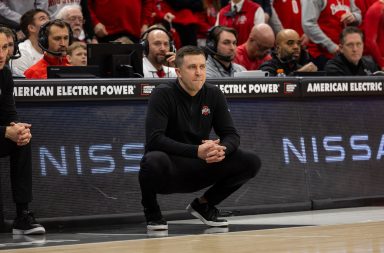That the Internet is the most important and influential technology of the last two decades for the distribution of popular music is undebatable. The question remaining is what the medium will mean for independent music.
The public discourse on this technology has been dominated by the outcome of the Recording Industry Association of America vs. Napster – the legal battle over file sharing between eager music fans and the lobbying interests of the Big Five record labels: Warner, Universal, EMI, BMG and Sony. And through this turmoil, the plight of unsigned artists and those on independent labels have largely been left out of these proceedings, partly because this legal battle has had few parallels with the ways in which indie artists and labels have approached the potential problems and benefits the Internet can provide.
Instead of originally supporting the death of online distribution through court cases that destroyed Napster in 2001, many indie labels at the College Music Journal festival showed vocal support and seemed more likely to embrace what the Internet can offer. Though not supportive of rampant, illegal file-sharing networks, indie labels have been much more open to the idea of regulated sharing networks and online distribution.
It is a distinction between the of economics of each sector.
For a major label who has control of popular media channels and has enjoyed middle-man status, the Internet poses the problem of cutting the label out. But for indie artists and labels who contract out for distribution, the Internet has the potential to be a channel unregulated by the powerful hand of the major labels.
Another distinction between the approach major and indie labels have towards the Internet and online distribution is the position of the signed artists themselves.
Aside from the RIAA’s empty claim that its legal proceedings were in the name of artists’ rights, the crusade of the major labels largely left out artists from the debate.
“Knowing what they (record labels) do about past bad faith makes artists bristle when the industry says it’s just trying to ‘defend artists’ rights,’ ” said Herbie Hancock in the preface to Sonic Boom, a book on the MP3 craze. “Who wouldn’t resent being used as a pawn this way?”
On the other hand – in keeping with the cooperative nature of indie labels and their artists – smaller scale labels have not been eager to kill the potential of Internet distribution, many releasing free MP3s online. Other indie artists have banded together online through different web-hosting companies that are artist owned and operated, such as the Brooklyn-based Wiselephant.
With a mission statement drenched in do-it-yourself ethics, Wiselephant offers web design, web publishing and other offline services for artists, trying to direct users cyclically – from one band’s site, back to the home page and then to other artists’ sites.
Alex Johnson, lead director of the company, noted that his approach tried to bypass the mistakes he has made as an artist in the past in order to help artists master the tricks of marketing.
“We come from the perspective of what we want now and what we wanted (as artists) in the past,” he said. “We try to continually drive traffic to our artists’ sites. That will help our site in the end.”
But even if indie labels remain open-minded to the multi-faceted potential of the Internet, whether or not that potential can be realized in the future is unsure.
Some panelists sitting among a CMJ-sponsored discussion felt the Internet can provide a level playing field for compensating artists that historically have not gotten the revenue many feel they deserve. Others insisted that the labels will still take the lion’s share of online profits as they have with record sales.
When asked if legal sharing sites will provide the opportunity for labels to offer artists fair licensing procedures and appropriate compensation, Jay Rosenthal, a Washington, D.C.-based attorney and panelist, seemed pessimistic.
“The labels will look at it differently,” he said. “They will come around kicking and screaming to it, but not at first.”
Also, with the reformatting of many online sharing sites, such as Napster 2.0 and iTunes, the major labels are beginning to realize and control the potential of the Internet, hurting the possibility for under-resourced indie bands to get exposure. When asked if the Internet can be a way for smaller bands to get exposure even if they can’t get shelf space at Tower Records, he seemed uncertain.
“They can only if they figure out how to get people to find those bands,” Rosenthal said. “I don’t think right now the Internet is a place where people find bands. I think fans are informed about bands from other sources – from radio, from newspapers, from friends. New bands are now faced with a great technology that (it) hasn’t figured out how to market.”


